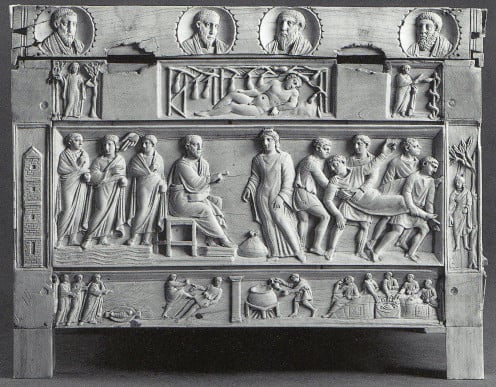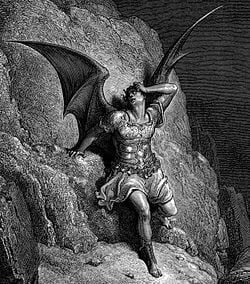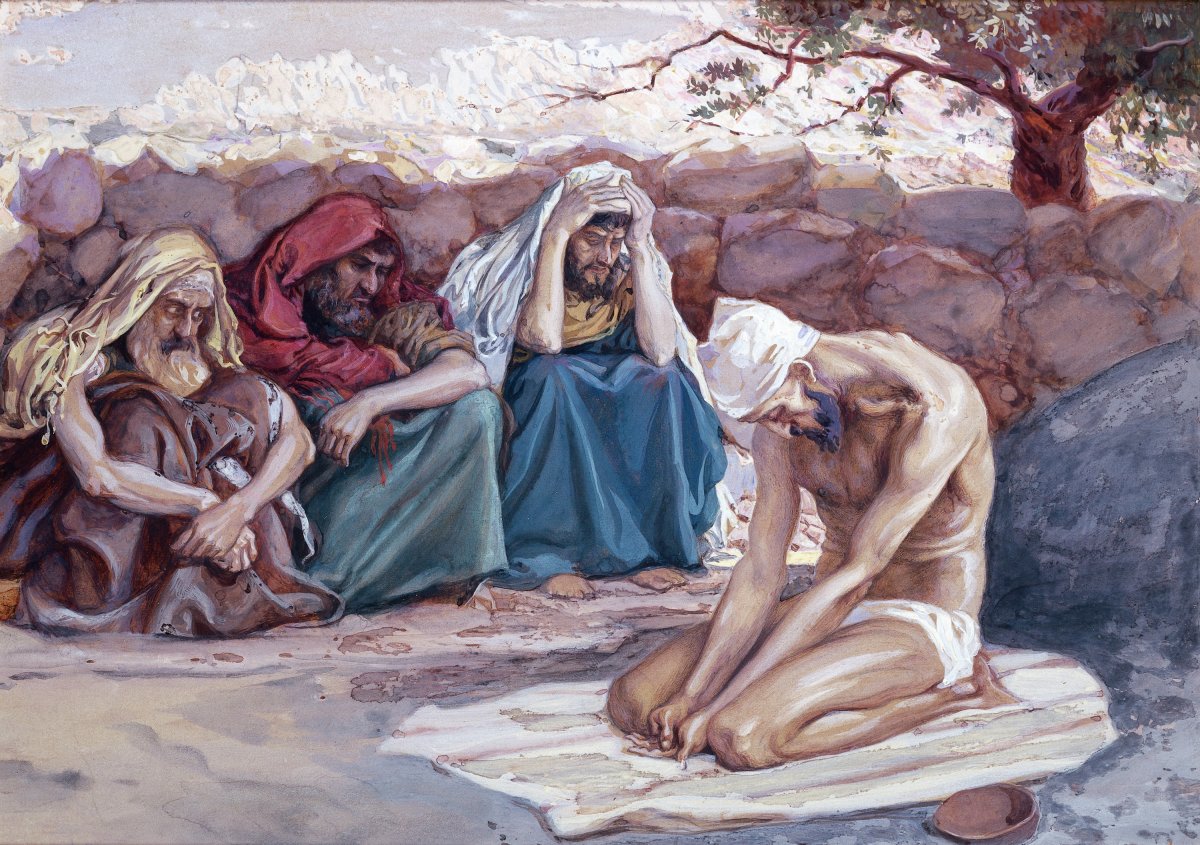Bible: What Does Acts 5:1-12 Teach Us About the Personality of Satan and of the Holy Spirit?
The Apostle Peter

Ananias and Sapphira

Acts 5: 1-12-- Lying to God the Holy Spirit
While many well-to-do landowners contribute freely to the needs of the saints, some of them seek to benefit by the sale in many ways.
Although Ananias does sell his land, he brings only part of the proceeds to the apostles, keeping part of it for himself and his wife Sapphira (vv. 1-2).
[So far, he has done nothing wrong.
If he wished to retain some of the money for his family, that choice was his own business.]
Informed by the Holy Spirit, Peter confronts Ananias about succumbing to Satan’s suggestion that he lie regarding the true price of the land (v. 3).
[The text reads, “Ananias, why has Satan filled your heart . . .”; however, the sense seems to be, “Why have you allowed the devil to control your thinking?]
[Ananias sought to benefit in two ways: first, he wished to appear to the apostles as more generous than he actually was.
Second, he wanted to profit financially from the transaction.
Not only did he lie to the apostles in attendance, but he also lied to the Holy Spirit—the One actually overseeing the proceedings—when he told Peter that he sold the property for less than he did.]
The apostle reminds him that the land belonged to him before he sold it—no one forced him to sell it—and that he somehow retained control over it after the sale (v. 4a).
[How can this status be?
If he sold the land, does it not now belong to the new owner to do with how he sees fit?
Perhaps it was common practice to place a condition upon the purchase of the land.
For instance, the new owner must agree to follow certain stipulations the former proprietor set down in order to ensure that he uses the land properly.]
Satan

Fairness
Do you think it was fair for God to put Ananias and Sapphira to death for their sin?
Peter understands that Satan was fundamentally responsible for planting the thought (v. 3a), but he also recognizes Ananias’ culpability for “conceiving this thing in your heart.”
He considers the man’s lying to God—
[notice the apostle assigns the status of Deity to the Spirit; He is not a force, for one cannot lie to a force or impersonal influence]
—as more grievous than if he had simply lied to men (v. 4b).
[Believers, therefore, have the ability to overcome the devil’s schemes.
Not availing themselves of God’s power, but allowing their fallen nature to follow Satan’s lead, constitutes spiritual treason.]
Suddenly, Ananias collapses, dies, and is apparently buried immediately.
The news of this event reverberates throughout the city, causing “great fear” among the saints (and possibly others) [vv. 5-6].
Unaware of her husband’s death, Sapphira appears on the scene three hours later (v. 7).
Seeking to discover whether she knew the details about the sale of their land, Peter questions her about its price (v. 8).
When she agrees with what Ananias had said was the cost of the land, the apostle rebukes her for conspiring with her husband “to test the Spirit of the Lord,” and informs her that she is about to join him in the burial plot (v. 9).
Immediately, she falls down and breathes her last, and the same gravediggers who had come for Ananias cart her corpse away as well (v. 10).
[Ryrie writes that putting God to the test signifies an attempt to “see how far they could go on in presuming on God’s goodness” (New Testament Study Bible, 14).]
Again, “great fear” descends upon the Church and others (v. 11).
[Perhaps as a warning to others contemplating the same ploy, the Spirit made Ananias (and later, Sapphira) an example of a believer chastened unto death (cf. 1 Cor. 5:5; 11:30)].
Chart from Acts 2-5
Acts 2
| Acts 3
| Acts 4
| Acts 5
|
|---|---|---|---|
Then fear came upon every soul
| Then they knew that it was he who sat begging alms at the Beautiful Gate of the temple;
| Now all the multitude of those who believed were of one heart and one soul
| So great fear came upon all the church and upon all who heard these things.
|
Many wonders and signs were done through the apostles.
| And they were filled with wonder and amazement at what had happened to him
| Neither did anyone say that any of the things he possessed was his own, but they had all things in common
| And through the hands of the apostles many signs and wonders were done among the people.
|
Now all who believed were together, and had all things in common,
| Now as the lame man who was healed held on to Peter and John, all the people ran together to them
| And with great power the apostles gave witness to the resurrection of the Lord Jesus. And great grace was upon them all.
| And they were all with one accord
|
And sold their possessions and goods, . . . So continuing daily with one accord in the temple
| In the porch which is called Solomon’s, greatly amazed.
| Nor was there anyone among them who lacked
| In Solomon’s porch (v. 12)
|
© 2013 glynch1








